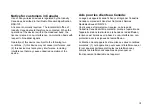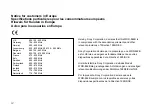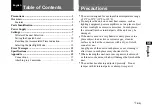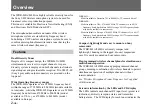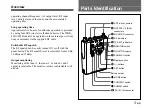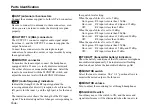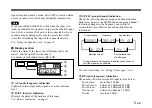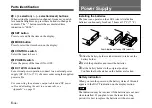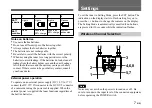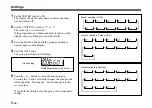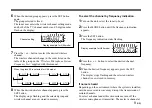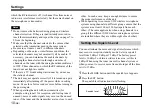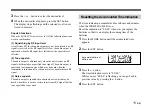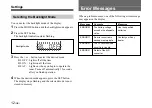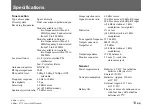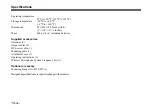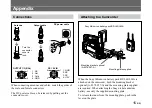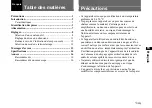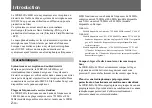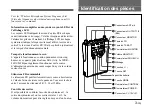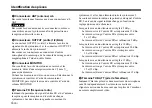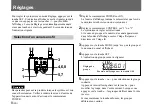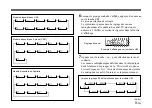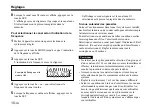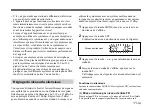
13
(GB)
Specifications
Tuner section
Type of reception
Space diversity
Circuit system
Dual conversion superheterodyne
Receiving frequencies
Model available in USA:
two frequencies within a 24
MHz frequency band selected
from 470 to 806 MHz
Model available in Europe:
two frequencies within a 24
MHz frequency band selected
from 470 to 862 MHz
Model available in Australia:
two frequencies within 792 to
806 MHz
Local oscillators
1st: Crystal controlled PLL
synthesizer
2nd: Crystal oscillator
Antenna connectors
BNC-R (2)
RF input impedance
50
Ω
RF squelch level
5 dBµ /10 dBµ /15 dBµ or OFF
selectable
Frequency response
40 Hz to 18 kHz
De-emphasis
50 µs
Selectivity
60 dB or more
(at ±250 kHz detuned)
Spurious rejection ratio 70 dB or more
Image rejection ratio
60 dB or more
Signal-to-noise ratio
30 dB or more at 10 dBµ RF input
60 dB or more at 60 dBµ RF input
(±5 kHz deviation at 1 kHz
modulation, A-weighted)
Distortion
1% or less
(±40 kHz deviation at 1 kHz
modulation)
Tone squelch frequency 32.768 kHz
Output connectors
SMC9-4S (2)
Output level
–58 dBm
(±5 kHz deviation at 1 kHz
modulation)
Output impedance
150
Ω
, balanced
Monitor connector
3.5 mm (
5
/
32
inch) dia.
stereo mini jack
General
Power requirements
Batteries: 6 V DC , four alkaline
batteries LR6 (size AA)
External: 12V DC
Current consumption
Batteries: Approx. 230 mA
at 6V DC
External: Approx. 135 mA
at 12 V DC
Battery life
5 hours or more of continuous use
with four Sony LR6 alkaline
batteries at 25
°
C
.............................................................................................................................................................................................................................................................
0 dBµ = 1 µV
EMF
0 dBm = 0.775 Vrms (600
Ω
loaded)
Summary of Contents for WRR-862A
Page 20: ...16 GB ...
Page 52: ...16 DE ...

